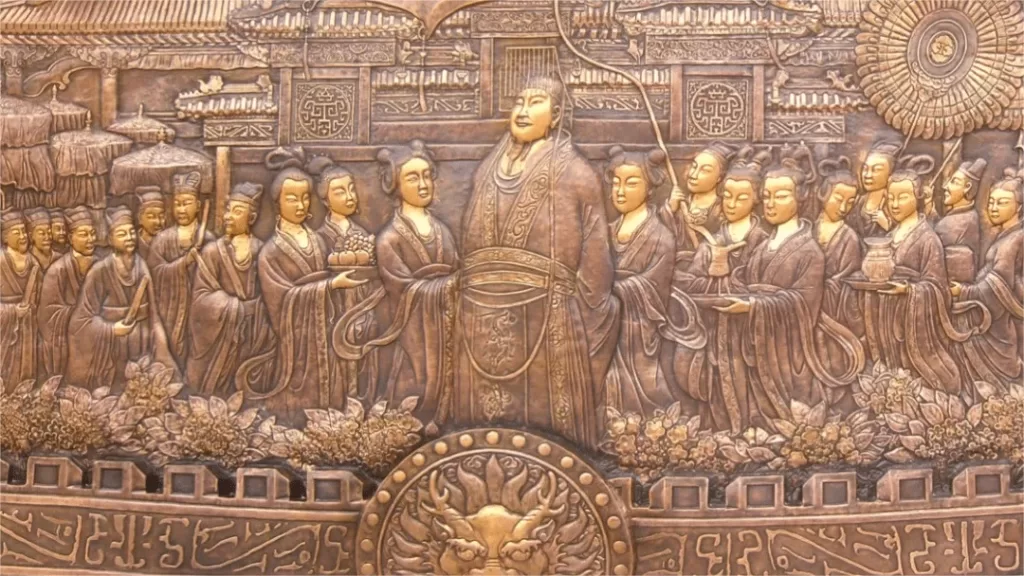Emperor Yang of Sui, Yang Guang (569-618) (隋炀帝杨广), was the second emperor of the Sui Dynasty, reigning from 604 to 618. Born as the second son to Emperor Wen, Yang Jian, and Empress Dugu Qieluo, Yang Guang exhibited intelligence, a handsome appearance, and exceptional literary talents. In the first year of the Kaihuang era (581), he was appointed the Prince of Jin, later participating in the suppression of the Southern Chen during the Southern and Northern Dynasties period. His father, Emperor Wen, recognized his potential and designated him as the Crown Prince in the twentieth year of the Kaihuang era (600). In 604, following the death of his father, Yang Guang ascended the throne as Emperor Yang of Sui.
During his reign, Emperor Yang undertook ambitious construction projects, most notably the Grand Canal, a monumental waterway connecting the Yellow River and the Yangtze River. Additionally, he initiated the relocation of the capital from Chang’an to Luoyang. Despite these grand achievements, Emperor Yang’s reign is marred by his extravagant lifestyle and heavy taxation, causing widespread discontent among the people.
The construction projects, including the Grand Canal and the new capital, required enormous resources and forced labor, contributing to the financial strain on the empire. The levying of excessive taxes and oppressive levies further burdened the already struggling population. The emperor’s luxurious and indulgent lifestyle exacerbated the economic difficulties faced by the common people, leading to widespread resentment.
Emperor Yang’s foreign policy was characterized by frequent military campaigns. He launched expeditions against various neighboring regions, including the Tuoba Xianbei, whom he conquered, and the Goguryeo kingdom in the Korean Peninsula. These military endeavors not only drained the imperial treasury but also caused severe economic disruptions and societal upheavals.
One of the most significant consequences of Emperor Yang’s reign was the escalation of social unrest and the emergence of large-scale rebellions. The most notable of these was led by the agrarian rebel leader Dou Jiande. The rebellion gained momentum due to the dissatisfaction among the populace caused by the emperor’s policies. Eventually, these uprisings played a pivotal role in the downfall of the Sui Dynasty.
In the fourteenth year of the Daye era (618), Emperor Yang’s reign came to a tragic end. While touring Jiangdu, he was assassinated by the general Yuwen Huaji. This event marked the culmination of years of discontent and rebellion against the emperor’s oppressive rule.
Despite the controversies surrounding his governance, Emperor Yang of Sui left a cultural legacy in the realm of literature. His poetic masterpiece, “Spring River in Flower Moonlight Night” (《春江花月夜》), is considered one of the most artistic and accomplished works of the Sui Dynasty. The poem not only reflects the fusion of Northern and Southern poetic styles during the Sui period but also foreshadows the direction of the burgeoning Tang Dynasty poetry.
In summary, Emperor Yang of Sui was a complex and controversial figure in Chinese history. While his reign witnessed remarkable engineering feats, his extravagant lifestyle, heavy taxation, and militaristic policies led to widespread discontent, contributing to the eventual downfall of the Sui Dynasty. Despite the political turmoil, Emperor Yang’s literary contributions endure as a testament to the cultural richness of his era.

